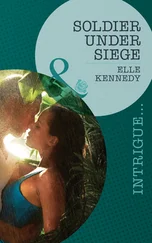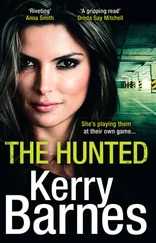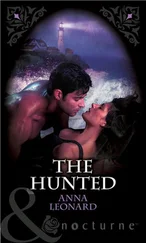“I don’t see it that way,” Sully said.
“-pretty, wait, what? Enlighten me.”
“I’m not the one with the exposure. I didn’t let the fucker get in the Capitol. I didn’t let him get out. I got within ten feet of him without a gun, pistol, or badge, and had the drop on him, besides. The police and the feds, they can’t say that. They don’t correct us on this. We correct them .”
THE POLICE WEREtaking witnesses and survivors over to Union Station, or to hotels at the foot of the Hill. By the time Sully was finished talking to R.J., the crowd was almost all gone, nothing left but stragglers. So when he was herded with the rest to the east entrance, right across from the Supreme Court, he figured he’d walk home. It was just six blocks up East Cap and two north on Sixth Street.
But when he walked past the waiting bus and got a dozen steps up the street, every cop on the block started screaming at him, shouting, uniforms running, boots on the wet asphalt. Two of the tacticals on the corner, beneath floodlights, had M-16s trained on him.
This set off a five-minute pissing match about who could go where and orders and states of emergency and what defined a public street. The bus pulled away and left. The cop said that he’d throw his ass in D.C. Jail. Sully, the cavity behind his eyes feeling like it was about to explode, pulled out his phone and called the cell of John Parker, head of D.C. Homicide, who didn’t pick up. Sully, still holding up a wait-a-minute finger at the cop in front of him, called right back. Parker picked up this time and said, “If this caller ID is right, it better not be.”
Sully gave Parker the ten-second summary and said he’d count it as a personal favor and handed the phone to the cop. The cop listened and didn’t say anything and handed it back to Sully. The cop waved his hand and said, “Let the fucker get shot then.” He waved his arms back and forth to get the attention of the cops a block up, at the end of the Supreme Court building. Then he told Sully to walk his bony ass down the middle of East Cap all the way home and that if he got shot, all they’d do is stand there and watch him bleed out.
Sully limped to the first checkpoint, the cops there eye-fucking him, then moved from the brightly lit part of the city immediately into the neighborhood of narrow row houses and brick sidewalks and overhanging trees, the hush descending.
The cell in his hand buzzed.
It never failed to astonish him how vast the seat of power on the Hill was, a center of clout, senators and representatives who could change the lives of the entire nation, if not the world… and, one lousy block east, you crossed a two-lane and you were in a Washington neighborhood of row houses and corner markets and alleyways, where streetlights didn’t work, air-conditioning units hung out of most of the windows, you could buy dope in the parks, and nobody gave a rat’s ass about who you knew.
The tremors-he felt them start at his fingertips.
The cell buzzed again.
Still in the middle of the street, he was approaching the checkpoint at Third Street, the police cruiser blinding him with its spotlight. He clicked to accept the call without looking at it, expecting Parker or R.J.
“This is Carter.”
Lucinda’s high-pitched voice burst out of the phone.
“How could you not even call ,” she said. “I trust you with my son and this is what-”
He came up even with the cruiser and shielded his eyes to click off the call, his sister still at full volume. The cops cut the searchlight and stared at him.
“Family,” he smiled, twiddling the phone back and forth. “We good, gentlemen?”
***
Ten steps past the checkpoint, the cell buzzed. Arizona area code. He clicked it back on. “Lucinda, I got to tell you,” he said, before she could speak, “you scream in my ear like that one more gotdamn time, we won’t talk again.”
She was quiet now but seething. He could feel it coming through the line.
“Sullivan. Sullivan. Sullivan. Let me breathe. I send my only child to you. Only child. And you go gallivanting after some crazy man with a gun. Leaving him alone. He called at least five times tonight, scared to death. And now this lunatic is loose? Blocks from my son? What, I ask you, what are you doing to keep him safe?”
There were times he wished he smoked, to give him something to do when he felt the world pinwheeling beyond his grasp, that out-of-control feeling that had taken over so much of his life since Bosnia.
Bourbon floated across his mind, just like that, and he unconsciously turned to look at the pub on the corner, but the red and blue neon OPEN sign was off, of course, the entire block shuttered. Even the houses were dark, people huddled inside, thinking that somehow Terry Waters was lurking by the Japanese maple in the front yard.
“ Sullivan ,” her voice rising. “Did you hear me?”
He pictured Lucinda in the kitchen of her house in Phoenix, sitting at the breakfast nook-that’s what she called it, honest to Christ-looking outside at the dry hills in the distance, still light there this time of year, the house quiet, Jerry off at the grocery store, overseeing all of them in the city or region or whatever.
He also made a mental note to pop Josh upside the head, soon as he got home.
“I would call it doing my job,” he said, finally. “Josh was at home in the basement watching television,” he said. “Boy was fine. Eating pizza. Is fine.”
“You hung up on me just now,” she said, sounding like she was reading from an indictment.
“You called me three hundred times already,” he said, now nearly shouting himself. “Any one of those coulda gotten me killed, you know that? You coulda given this psycho a homing beacon to blow my head off. You knew Josh was gotdamn good-and-well safe but you could not wait, could not wait , to fuck with me about it. Calling me at work to start some shit about your kid at my house.”
She took a breath down the line and he roared into it.
“You with me here? I call and ask you to babysit all summer? Nope. You called me and I got your boy in the flipping Corcoran, a summer session with Bill Christenberry, for God’s sake.”
“You keep saying that like I’m supposed to know who it is.”
“You should.”
“Don’t lecture.”
“How long’d it been since we talked, then you call me up asking if Josh could come?”
“Don’t start.”
“That’s not a date on a calendar.”
“A long time, Sully.”
“A long time, you’re fuckin’ A. You didn’t come to see me when I was in Walter Reed, after Bosnia, right? What, I was out cold and missed you?”
Silence, then: “No, Sully, you did not.”
Long, slow, resigned, the same sibling waltz they’d been dancing since the family had collapsed and they’d been farmed out to different relatives. Lucinda to Phoenix, Sully to New Orleans.
Lucinda had found religion. Sully had found bourbon. Their bonds, stretched paper-thin, drifted apart like a spiderweb in the wind. The answer to the question he’d posed was five years, maybe six, and then seven or eight before that. Twice in fifteen years, call it that. Both at Christmas. They were, by any measure, strangers, but maybe even worse than that-people who had once shared a bond and lost it. Now any meeting, any conversation, was filled with the shadows and silences of the intervening years and the weight of what had happened to their parents.
“You, you, you call, tell me the kid’s a prodigy,” he said, “asking me if there’s a summer art program in D.C., something to boost his college application.”
Читать дальше
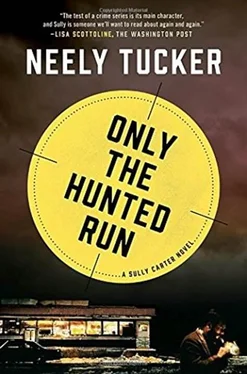

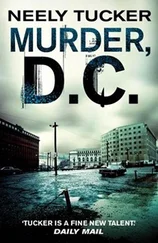




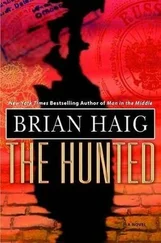
![Джон Макдональд - The Hunted [Short Story]](/books/433679/dzhon-makdonald-the-hunted-short-story-thumb.webp)
